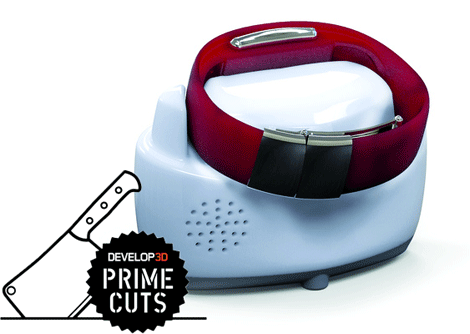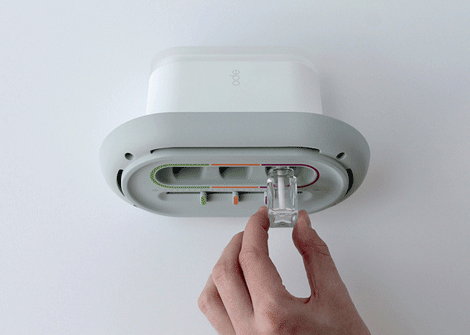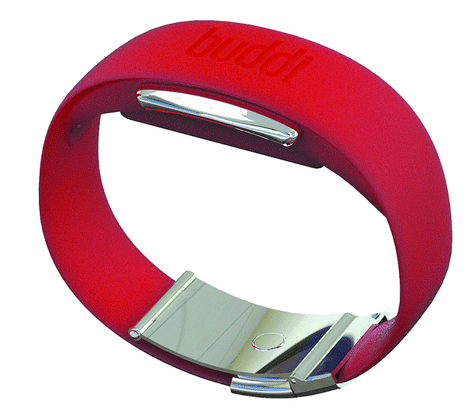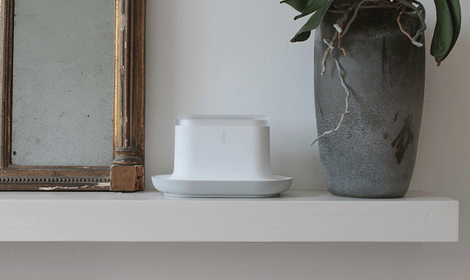
The Buddiband, designed to help its user stay active and safe
Winning ideas from a competition to help care for sufferers of dementia have been unveiled, including a fragrance-release system designed to stimulate appetite, and an intelligent wristband that supports staying active safely.
The competition has been a joint venture between the Department of Health and the Design Council to drive innovation, with potential to make a big difference for people with dementia and their families.
A consequence of an ageing population is a threefold increase in dementia over the past twenty years, meaning many millions of people who need new products and services designed to meet their changing needs.

Ode, a fragrance-release system designed to stimulate appetite
In 2009 the Department of Health launched the National Dementia Strategy for England, one of the first strategies of its kind in the world to tackle this growing challenge, with product design being an important part.
The national clinical director for dementia, Professor Alistair Burns, said: “We’re tackling dementia on a variety of levels, and whilst research into effective treatments is progressing, it’s vital that we develop new ways to improve key aspects of life for those with the condition, and their carers.
“I have no doubt that the prototypes shown today could have a major positive impact on quality of life, continuity of care and the wellbeing of those with dementia.”
The products:
Buddiband

A wristband personal alarm that people will be happy to wear and can send alerts from anywhere to buddi’s support services, the buddiband is comfortable, discreet and waterproof.
To avoid battery replacement and daily charging, it is fitted with the most powerful possible rechargeable battery and designed to be as power-efficient as can be.
While wearability is its greatest innovation, the device also offers more functionality than any other on the market:
– Manual emergency alert: Responses handled by buddi’s 24/7 emergency response centre.
– Automatic fall alert: If a user has a fall the wristband detects it and calls for assistance.
– Lifestyle monitoring: Detecting shifts in typical activity levels. If a user’s activity levels significantly diminish, contact is made with the user or carer.
– Online monitoring: Allowing carers to keep an eye on activity levels without being present.
Ode

A fragrance-release system designed to stimulate appetite among people with dementia. The mains-powered unit releases three food fragrances a day, adjustable to coincide with the user’s mealtimes.
Scents have been developed specially for ode, in conjunction with a leading fragrance laboratory and in response to workshop feedback, while users can choose their preferred scents at installation.
Fragrances are released in short sharp bursts, acting as a strong appetite trigger and then dissipating rapidly so users won’t become inured to the effect.
A subtle light indicates the device is working and also communicates when fragrances need refilling.
A specially-built exhibition at the Design Council will showcase the new prototypes, plus the other three winning designs on Thursday 26 and Friday 27 April.






